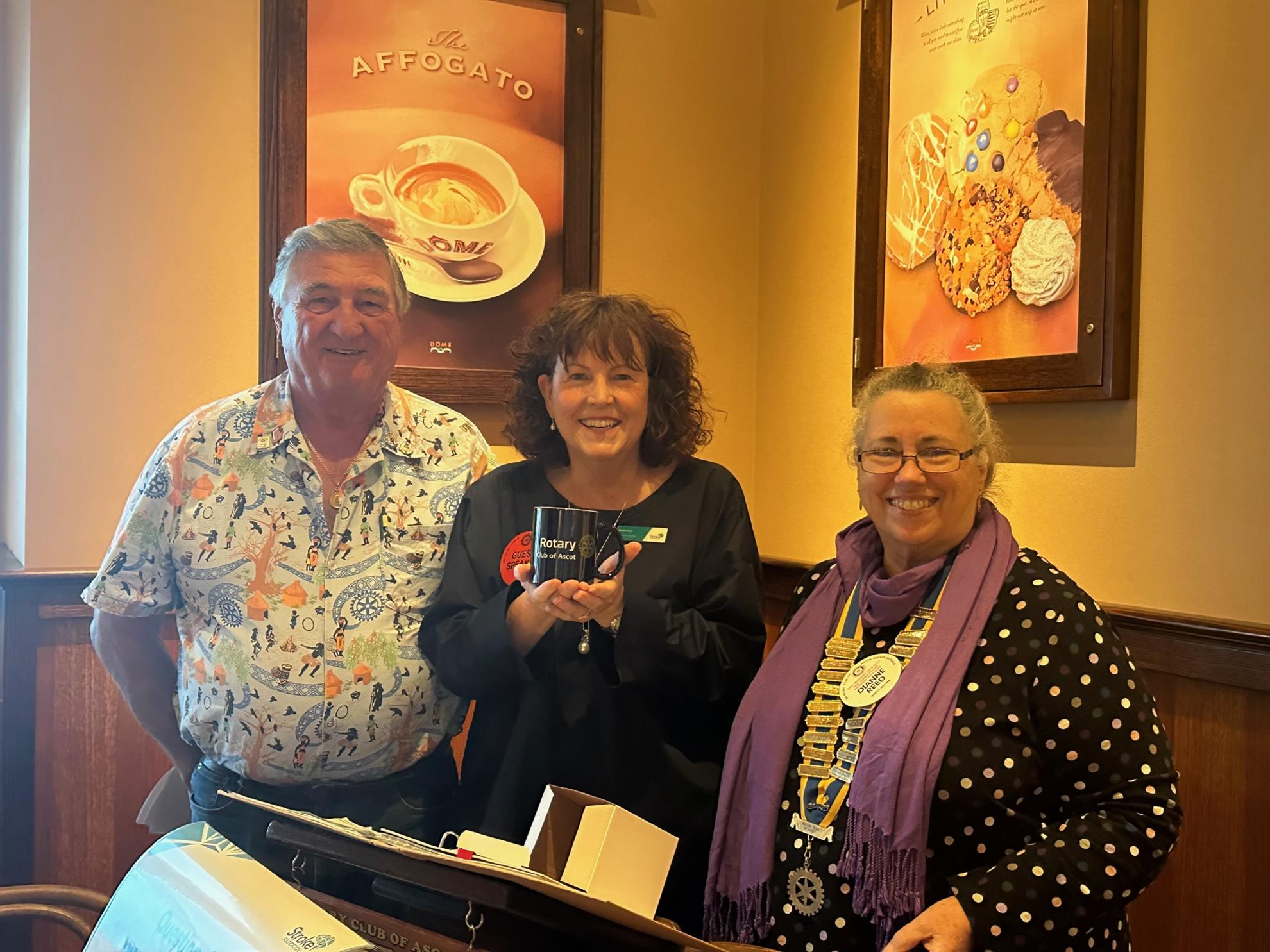This morning we had a visit from Katherine, a volunteer with the Stroke Foundation. She spoke to us about the need to be aware of the symptoms of having a stroke because the faster you can take action, the better the result will be. Katherine is seen here at the end of her talk accepting our thank you gift from Alan, the host chair; and Dianne, our club President.

Katherine, a past Rotary Scholarship winner, is now a volunteer with The Stroke Foundation. She spoke to us about the need to be quick acting when someone has a stroke to limit the damage that a stroke can have on a person.
Interesting statistics around strokes that she told us included:
- Strokes are the biggest killer or most likely to leave someone with a disability.
- Strokes kill more women than breast cancer does; and more men than prostate cancer does.
- One person every 19 minutes will have a stroke in Australia
- About 2 million brain cells are lost every minute whilst a person is having a stroke
- Some 4.3 million Australians have high blood pressure, which increases their chances of having a stroke.
To make it easy to recognise the symptoms (because they are not always apparent), we can follow the FAST rule which will allow us to identify about 80% of the people who are having a stroke.
F - Face - is it drooping?, can they smile? has one eye drooped?
A - Arms - can they lift BOTH arms at the same time?
S - Speech - is it slurred? can they understand what you are saying?
T - Time - we must be quick acting - call 000 immediately and tell them you suspect someone is having a stroke. Don't let the person stop you from calling that number, as the symptoms can last for only a few seconds, but have an everlasting effect. Stroke symptoms are mostly painless so often ignored. Don't let that happen.
About 80% of strokes are preventable. They are more common in younger men than in younger women; but as women age, they become more common in women. It is not hereditary, but it can increase the risk if other family members have had a stroke.
Katherine indicated that we should know what our blood pressure readings are as well as our cholesterol levels - if we don't - get them checked. She left us with some good advice: eat well (limit your salt intake to about 5 grams per day); eat plenty of fresh foods rather than processed foods; stay active - about 30 minutes per day is a good amount; drink alcohol in moderation; and remember that smokers are twice as likely to have a stroke than non smokers.
Want to know more? The Stroke Foundation is a national charity that partners with the community to prevent, treat and beat stroke.
Check out their website: strokefoundation.org.au
Thanks Katherine - a very informative talk this morning.